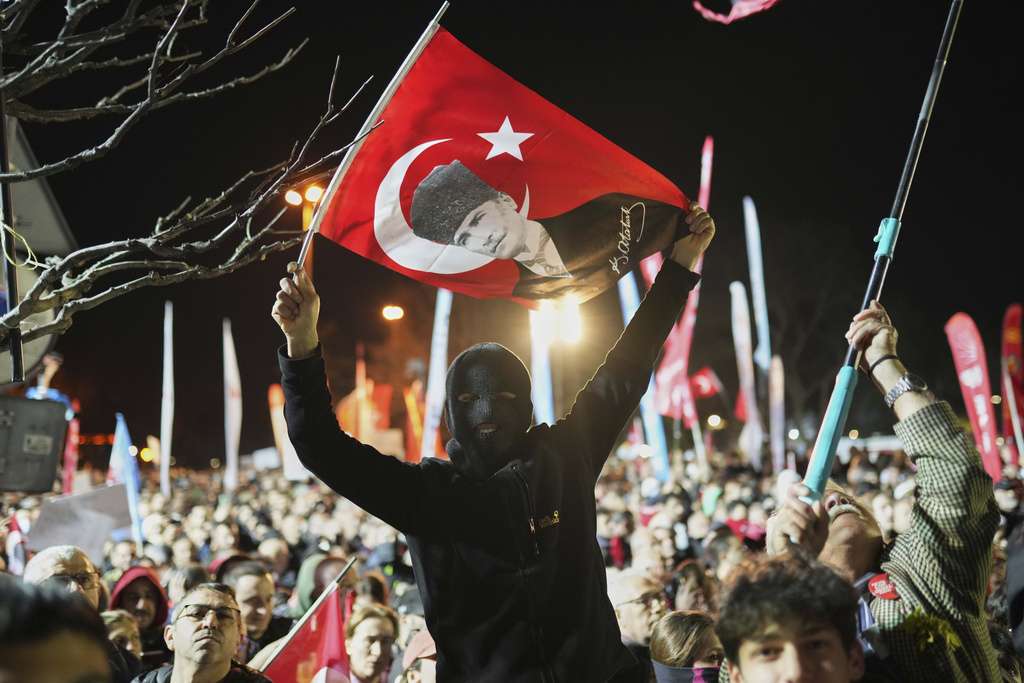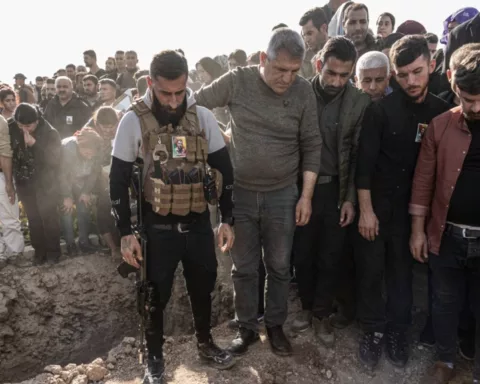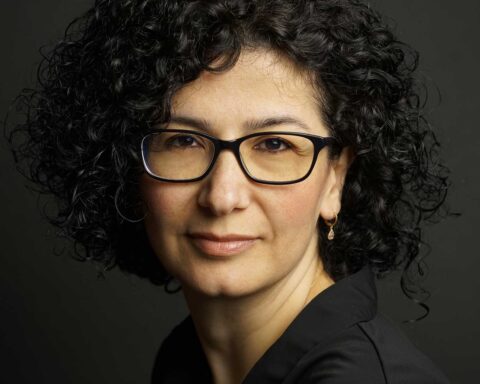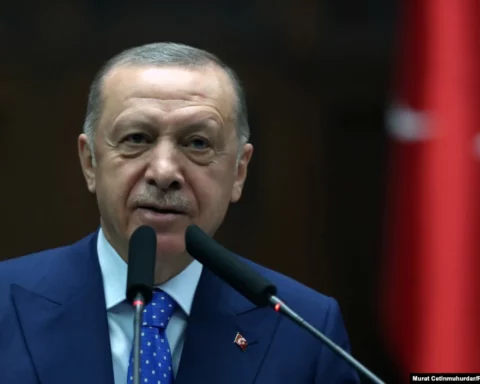Turkey has detained more than 1,400 protesters and multiple journalists following the arrest and jailing of a prominent opposition figure, Istanbul Mayor Ekrem Imamoglu, sparking widespread unrest and international condemnation.
The crackdown, which unfolded over several days, marks the largest wave of protests in the country in over a decade, as citizens rally against what they perceive as an authoritarian move by President Recep Tayyip Erdogan to silence dissent.
This article explores the events leading to Imamoglu’s arrest, the government’s heavy-handed response, the plight of detained journalists, and the broader implications for Turkey’s democracy as tensions soar.
The arrests began on March 19, 2025, when Turkish authorities detained Imamoglu, Erdogan’s chief political rival, on charges of corruption and alleged ties to terrorism—accusations his supporters and international observers widely dismiss as politically motivated.
By March 26, 2025, the Turkish Interior Ministry reported that 1,433 individuals had been detained nationwide during five days of protests, alongside at least ten journalists arrested for covering the demonstrations.
The jailing of Imamoglu, a leading figure in the Republican People’s Party (CHP), has ignited outrage, with clashes between police and protesters erupting in Istanbul, Ankara, and beyond, as reported by CNN and the BBC.
The Arrest That Sparked a Firestorm
Ekrem Imamoglu, the 54-year-old mayor of Istanbul, has long been seen as the most credible threat to Erdogan’s decades-long grip on power.
The New York Times notes that his detention came just days before he was set to be officially named the CHP’s presidential candidate for the 2028 election, a timing that fuels speculation of a deliberate effort to neutralize him.

On March 23, a Turkish court formally jailed Imamoglu pending trial, alongside 47 others, including municipal officials, on charges ranging from bribery to running a criminal organization—claims his wife, Dilek Imamoglu, denounced as “unjust and illegal” in a statement outside the courtroom, per CNN.
The BBC highlights Imamoglu’s meteoric rise, from winning Istanbul’s mayoralty in 2019—ending Erdogan’s party’s control of the city—to securing a landslide reelection in 2024. His arrest follows a pattern of legal actions against opposition figures, but its scale and timing have amplified public anger. Fox News reports that the CHP responded by holding a symbolic primary election on March 23, where 15 million Turks reportedly voted in solidarity with Imamoglu, though independent verification of this figure remains elusive.
Turkey Detains More Than 1,400 Protesters and Multiple Journalists After Jailing of Leading Opposition Figure
The government’s response to the ensuing protests was swift and severe. NBC News details how Turkish riot police deployed tear gas, rubber bullets, and water cannons to disperse crowds in Istanbul, where thousands gathered outside city hall to demand Imamoglu’s release. Interior Minister Ali Yerlikaya, speaking on March 24, accused protesters of “terrorizing” the streets and threatening national security, justifying the detention of 1,433 individuals, including 123 injured police officers, as reported by Reuters via Fox News. In Ankara, demonstrators faced similar tactics, with some pleading with police to allow peaceful marches, according to CNN.
Journalists covering the unrest were not spared. The New York Times and BBC report that at least ten journalists, including an AFP photographer, were detained in dawn raids on March 24, accused of inciting unrest through their reporting. The Media and Law Studies Association, a Turkish NGO, condemned the arrests, noting that most detainees were photographers documenting police actions. CNN adds that a Turkish court placed seven of these journalists in custody on March 25, a move decried by Reporters Without Borders as an assault on press freedom.
Erdogan’s Iron Fist: A Pattern of Repression
President Erdogan, in power since 2003, framed the protests as a “movement of violence” during a televised address on March 24, per NBC News. He accused the CHP of orchestrating chaos and vowed to hold them accountable for damages and injuries, a stance echoed by Fox News analysts who see this as a continuation of his strongman tactics. The BBC contextualizes this within Erdogan’s broader crackdown, citing the 2016 coup attempt aftermath, where tens of thousands were jailed, and the 2023 arrests of Kurdish politicians as precursors to the current clampdown.
The New York Times suggests that Imamoglu’s arrest is a strategic move to dismantle opposition ahead of potential early elections, a theory bolstered by Erdogan’s past success in leveraging crises to consolidate power. Analysts quoted by CNN argue that with Istanbul—a city of 15 million and an economic powerhouse—slipping from his grasp, Erdogan views Imamoglu’s popularity as an existential threat. The detention of over 1,400 protesters, many under a citywide protest ban in Istanbul, underscores this resolve, per The Guardian’s reporting cited by NBC News.
The Plight of Journalists in the Crosshairs
The targeting of journalists has drawn sharp international criticism. CNN reports that the detained AFP photographer, Yasin Akgül, had taken 187 photos of the protests, each a testament to his role as a witness—a role now punished by authorities. The BBC notes that the Journalists’ Union of Turkey and other media groups issued a joint statement demanding an end to “police violence” against reporters, who faced tear gas and plastic bullets while working. NBC News emphasizes the chilling effect: with media freedom already ranked low by global watchdogs, these arrests signal a further erosion of press rights.
European nations, including Germany and France, condemned the crackdown, with Germany calling Imamoglu’s jailing “totally unacceptable,” per France24 cited by CNN. The EU warned that Turkey’s actions undermine its decades-long bid for membership, a sentiment echoed by NBC News. Yet, Erdogan remains defiant, with Fox News reporting his late-night warning on March 22 that “no one in Turkey is outside the scope of the law,” a veiled threat to dissenters.
Protests Swell: A Nation Divided
The scale of the protests—described by The New York Times as the largest since the 2013 Gezi Park demonstrations—reveals deep societal fissures. In Istanbul, students rallied for a sixth night on March 24, per France24 cited by BBC, while in Ankara, opposition leader Özgür Özel’s speeches were met with police pellets and tear gas, according to Reuters via Fox News. CNN’s interviews with protesters highlight a common refrain: “This is a coup against democracy,” reflecting fears that Erdogan aims to entrench power indefinitely.
Despite bans, the CHP has fueled the unrest, urging peaceful demonstrations and symbolic acts like the solidarity vote. The BBC reports that ballot boxes were placed nationwide, though the government dismissed these efforts as provocative. Fox News notes a rare economic ripple: Turkey’s capital markets board banned short selling for a month after the Istanbul stock exchange faltered amid the turmoil, signaling broader instability.
International Fallout and Democratic Backsliding
The international community watches with alarm. NBC News cites Greece and France joining Germany in decrying Turkey’s “serious attack on democracy,” while the U.S. has remained relatively muted, a point of contention among Fox News commentators who argue for stronger American intervention. The New York Times warns that this crackdown could jeopardize Turkey’s NATO standing, especially as it negotiates peace with the Kurdistan Workers’ Party (PKK)—a potential olive branch overshadowed by domestic repression.
Analysts quoted by CNN suggest that Erdogan’s endgame is a constitutional overhaul to extend his rule, a goal Imamoglu’s rise threatened. The detention of over 1,400 protesters and journalists, coupled with the jailing of a figure as prominent as Imamoglu, signals a willingness to sacrifice democratic norms for political survival. The BBC’s Orla Guerin writes of “freedom and democracy steadily eroded in the Erdogan era,” a sentiment echoed across outlets as Turkey teeters on the brink.
What Lies Ahead for Turkey?
As of March 26, 2025, the unrest shows no sign of abating. The New York Times predicts that further protests could test Erdogan’s limits, potentially escalating the crackdown or forcing concessions. CNN warns of a disinformation war, with small clashes risking broader chaos—a tactic Turkey has weathered before. Yet, Fox News highlights a sliver of defiance: the CHP’s planned rally in Istanbul on March 29, signaling that the opposition remains unbowed.
For now, Turkey stands at a crossroads. The detention of over 1,400 protesters and journalists, alongside Imamoglu’s jailing, has galvanized resistance but also entrenched Erdogan’s narrative of control. Whether this marks the beginning of a democratic collapse or a turning point for opposition resilience remains uncertain, but the stakes—for Turkey and the world—could not be higher.
This article is based on reporting from BBC, CNN, NBC, Fox News, The New York Times, and additional outlets like Reuters, France24, and The Guardian, providing a comprehensive view of Turkey’s unfolding crisis.
Focus Keywords: Turkey protests, Ekrem Imamoglu arrest, Erdogan crackdown, journalist detentions, Istanbul unrest, opposition leader jailed, Turkish democracy






